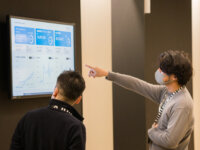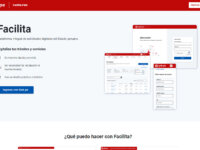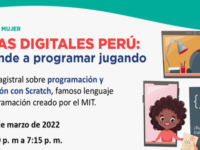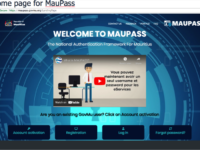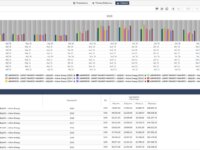The SMART LIDAR System uses advanced scanning lidar technology to monitor air quality in real-time and detect pollutants accurately. It helps identify and enforce against illegal emissions, reducing environmental pollution. Affordable and scalable, it offers an innovative solution for air quality monitoring.
Innovation Tag: Digital and Technology Transformation
The project considered the main needs that the Senate is facing:
-The need to facilitate citizens' access to public information, large number of requests, long time for responses
-Time consuming processes, the need to streamline internal processes
-The need to improve transparency of national decision-making process
-Low digital skills of employees
The project is innovative by digitizing internal workflows (mostly used only paper format), employee training and external processes for citizens
The Sola calculation tool allows estimate the economic impact of 25 distinct social phenomena at municipal, regional and national level. Impact assessments at one, five and ten year intervals can lead decision-makers to better understand how to invest in wellbeing and accelerate impact investing. Results of the tool have been used in several municipalities as part of health and wellbeing promotion. A MOOC course has been developed and similar calculation tools are recently being used in other…
The Digital Agency spearheaded the Policy Data Dashboard Project with an agile approach to visualize policy progress and propogate a culture centered on data. The project aims to effectively integrate data into policymaking by first creating an intuitive dashboard interface. To disseminate this data-centered culture, the project members are developing a design system guideline to empower civil servants in other central ministries and local administrations to create dashboards independently.
Rainlevelr is a joint approach to reduce the risk of flooding. By utilizing the water basins of horticultural companies, the Delfland horticultural area can absorb heavier downpours, thus preventing flooding for both the businesses and the surrounding area. In Rainlevelr, regional authorities, ‘Glastuinbouw Nederland’ and horticultural companies collaborate closely. The uniqueness of this innovation lies in the collaboration among various stakeholders involved in the use of water buffers…
The municipality of Joinville has seen a markable increase in its population, which have increased citizens’ demands for public services, particularly in the areas of education and health. Between 2019 and 2022, the municipality witnessed a 150 percent increase in new hires of public servants. To meet the increasing demand for hires and ensure that vacancies are quickly filled (particularly related to teachers or doctors), the Department of People Management, an organ of Joinville City Hall,…
Facilita Peru empowers public entities in digital transformation by digitizing procedures and services across 449 institutions with 1,500 forms, enhancing accessibility for citizens. Officials manage digital forms without operational costs, and citizens benefit from virtual procedures from home. The innovative virtual parts table streamlines application and record management for enhanced efficiency.
Niñas Digitales Peru inspires girls aged 8 to 17 in science and technology careers, addressing the underrepresentation of women in these fields. The program focuses on developing digital and technological skills, offering free Scratch Jr programming virtual workshops to girls nationwide and guiding them in programming digital stories. The goal is to inspire and equip girls for active engagement in crafting compelling narratives, fostering their participation in the digital world.
MauPass has been developed for citizens and businesses to transact easily and securely with Government online. It is a single window of authentication service to provide a layered approach towards e-Authentication implementation for all government and other e-services. This initiative follows an urgent need for better identity and access management for a trusted ecosystem.
Τhe Municipality developed a centralized Internet of Things (IOT) management platform with the ability to control, record and analyze power consumption data and other resources in buildings and other infrastructures, which can function as a smart city base for the Municipality. With it, the Local Authorities will be able to obtain documented data and prepare relevant analyzes for the purpose of certifying the Municipality and submit proposals for financing projects to reduce energy consumption.

